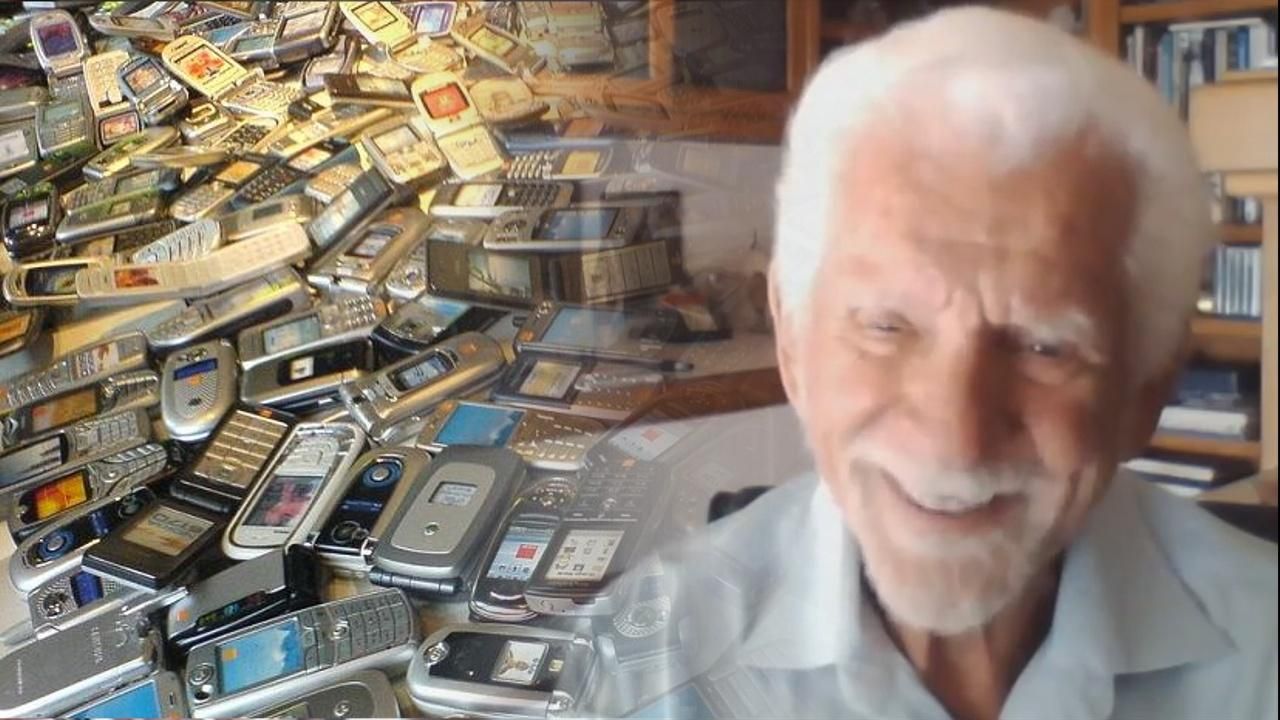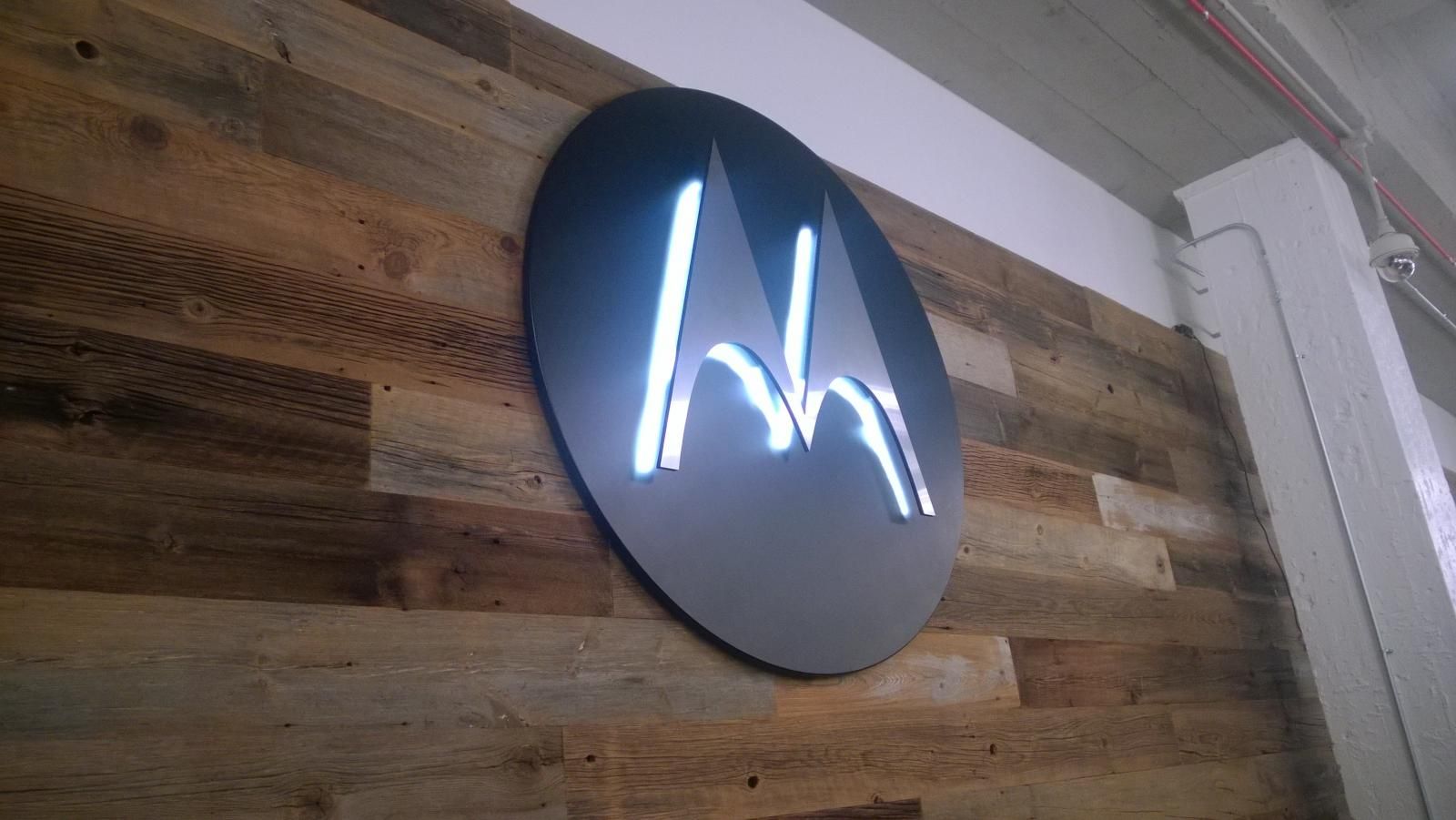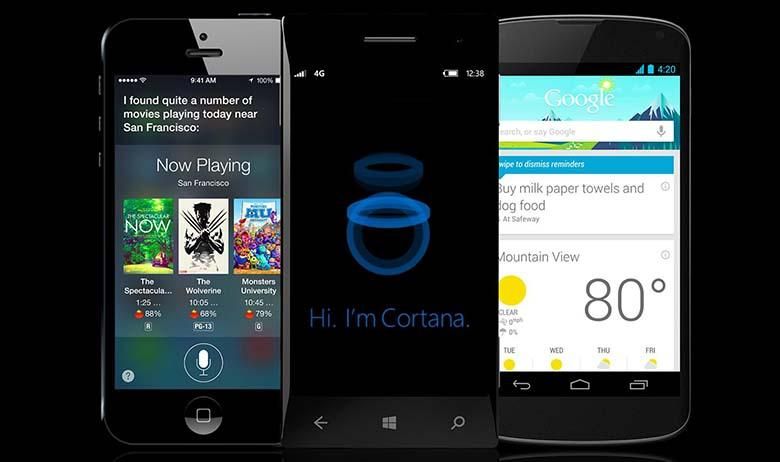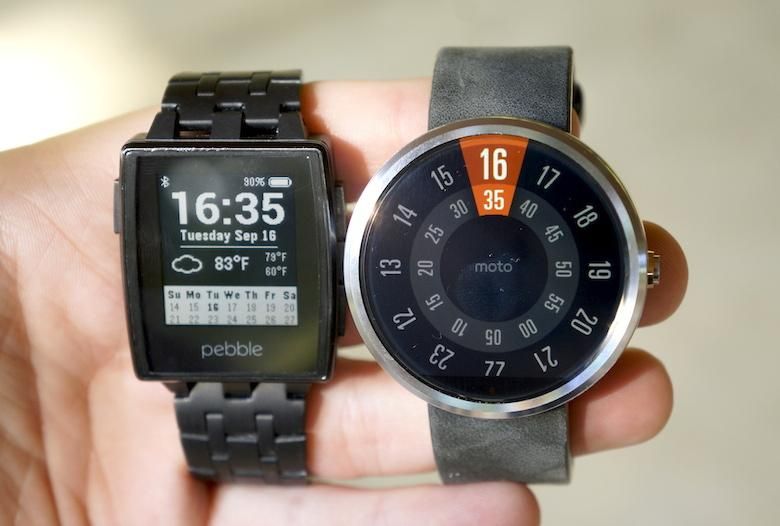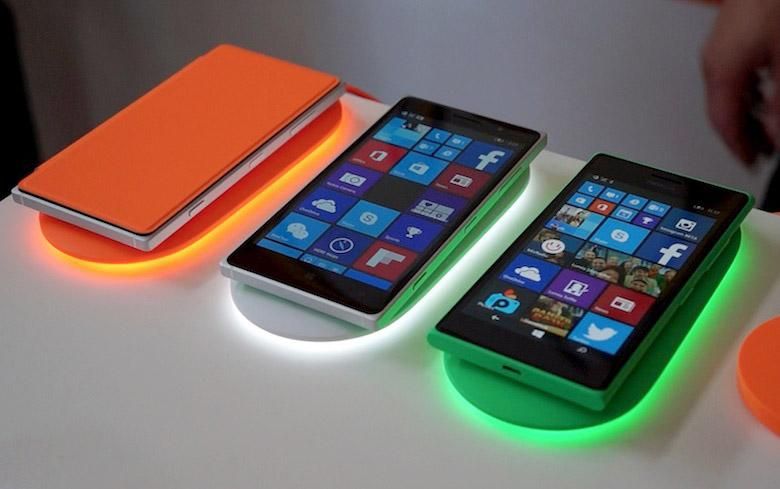We’ve given him our reverence more than once around here. But it’s another thing to sit down and talk with the man who made the smartphone possible. The man who – with the help of some very talented teams – made the cellular phone possible. The man who essentially made this site, our work and your thoughts on all of it possible. And our own Michael Fisher had the privilege of doing just that.
Dr. Martin Cooper, born in Chicago in 1928, graduated from the Illinois Institute of Technology in 1950. He left his first job out of school at Teletype Corporation (which would soon get entangled with his future rival company, AT&T) and joined Motorola in 1954. Between then and 1973, there was plenty of havoc wrought trying to engineer the first cellular radio tower and the first cellular phone.
Nowadays, he helps out on many corporate boards and committees in the mobile technology industry as well as the FCC. He also co-founded his own wireless solutions company, Dyna, LLC.
You’ll find out all about that as well as Cooper’s thoughts on the invisibility of software, the faltering concept of the “app” and even implantable technology. Michael nerds out on Star Trek and Dick Tracy and Cooper tries to flip open a Communicator. It was an interesting half-hour of dialogue and we are very happy to share it with you here.
We sit down with “the father of the portable cellular telephone,” Dr. Martin Cooper.
The video posted above has been closed captioned for your convenience. Below are the highlights.
On bringing phone to hand
Pocketnow: Your work at Motorola in the 1950s and 60s included things like wirelessly controlled traffic signals and police radios and other things that, at the time, may have been considered more conventional than the project you would ultimately spearhead. Motorola eventually became convinced of the need for a handheld portable cellular telephone and despite the fact that no revenues would be generated from that project for, what I’ve read is, about 20 years.
So, my question is: was it you who advocated for this project and if so, how did you manage to get the company on board and the people you ended up working with as well?
Dr. Martin Cooper: Well, I’ll tell you Michael, it wasn’t easy. It’s really Motorola’s motivation at that time.
We were the leader in the two-way radio business. And the essence of mobile radio is spectrum, just as it is with cellular today, and we were running out of spectrum. The motivation of the company was to somehow acquire more spectrum for land mobile radio. The FCC was prepared to convert a lot of TV spectrum and a lot of what was called “high frequency” back then to land mobile purposes. But they were looking for something that would change the future.
More efficient use of the spectrum, new services and along comes AT&T and they said, “Oh, we’ll take care of everything! We’ve got this new thing we call ‘cellular telephony’ and we will not only provide a car telephone service, but we’ll also take care of land mobile and air-to-ground. So just turn it all over to us: we’ll be a monopoly and the FCC won’t have to worry about these things.”
Well, we weren’t very happy about that. Because we would’ve essentially been out of business. But aside from the monopoly aspect, the idea of car telephones was totally an anathema to us because we were already getting into the portable devices and we discovered that once people have a portable device, they can’t live without it. We’re talking about commercial people, now: you’d walk down the aisles in an airport and you’d see the airport employees with their handheld two-way radios in their hands! It was, like, part of their operating procedures. So we got the message: people are naturally, fundamentally mobile.
And so, we, Motorola, took AT&T on at the FCC, but you understand that our bread and butter was two-way radios. This “cellular” thing was something new. So I was the lone ranger at that time. I was the maverick. And little by little, we worked on the management and the real tipping point was when we produced that first portable cellular telephone.
On intelligently designed intelligent software
Pocketnow: There have been some developments in the past 25 years in terms of smartphone platforms. We’ve seen a consolidation of a wide availability of choices — from Blackberry to Palm, Symbian and so on — to these two main players, iOS and Android.
A lot of people say that that was inevitable and that’s just the way it’s going to be. Do you agree that it’s the best thing for industry and that it is inevitable? Or do you think that the space has become less compelling as a result?
Cooper: Well, I do. I hate the concept of treating us all like we’re statistics. I think that every person is different from every other person. When you buy a car, you can design your own car right down to the last detail and be different than a million other cars. Here, you’ve got cellphones, you walk into the store and they’ve stopped selling flip phones — you’re pretty much stuck with either an Android, Apple or feature phone. And I think that’s wrong. I think we’ve gotten about as far as we can go with the megapixels, megahertz, megabits per second. All of those metrics, we’ve gone to the limit of what we can observe or hear or sense.
So, I think we’ve gotten to the end of the hardware age and we’re going to start moving into what I call the “brain age.” We have lost sight of the fact that good technology is invisible. The technology should be there. It should be our slave. It should be doing things for us but we should be unaware of it.
All of these operating systems are really intrusive and the most intrusive part is the concept called the “app.” Talk about throwbacks, I think the concept of the app is the most user-unfriendly. Think about it: you’re looking at the advertising for Android and Apple. They keep competing with each other about how many million apps are actually there. How can any user — who really wants the technology only to make his life better and not to become a techie — curate a million apps? It doesn’t make any sense at all.
Since we’ve gone about as far as we can go with the hardware, I think we’re moving into this age of “what does a cellphone really do to help you?”
“How can this cellphone be an extension of your mind and body?”
There are now apps — hate to use the term — that actually try to anticipate your needs and respond to them.
Pocketnow: Some of that is being ingrained into the platforms as we go forward. For example, Google Now on Android devices: they’re trying to anticipate what you are going to be search for and deliver it to you before you ask for it.
Cooper: You bet. You bet! I think the whole idea of the app is going to disappear.
On having more form factors
Pocketnow: You’ve said a few times over the years that when this industry matures, people are going to have many different devices for many purposes. This “one size fits all” device really can’t do any one very well and does every job in a sort of mediocre way.
But we’ve seen sort of the opposite happening right now in the marketplace as devices first shrank to candybars and then blew up to slabs again, becoming these very convenient all-in-one media player/camera/communication device/text communication devices. Do you think that trend will ultimately reverse itself and we’ll be carrying a lot of specialized devices?
Cooper: It’s convenient, but it’s sub-optimal. And you’re not exactly telling the truth because I’m looking at you right now and you’ve got a thing stuck in your ear.
Pocketnow: I do and I’ve got a watch on, you know, a wearable.
Cooper: There you go. You’re starting to distribute to devices already. I’m not sure if the watches are going to be successful, but the people that I’ve seen that are hooked on the watch? They can’t live without their watches now because they don’t reach for their cellphone every minute. Turns out that your watch, your arm is more convenient to raise than reaching for the cellphone. It’s a very subtle difference, but it’s so subtle as to create new industries.
And when you start doing things like measuring your heart rate or measuring the fluid in your lungs, you can’t do that with a cellphone. In fact, I already saw the start from the beginning that the cellphone… is a sub-optimal phone! You get this flat piece of plastic and stick it up to your face! That doesn’t make any sense at all.
So, if you start by trying to optimize every device, every function that the phone does, you find out that maybe you will start distributing things in different ways for different people: some people want some device that they’re listening to, other people will have glasses and they will think that the wristwatch is very inconvenient — which it really is, because your arm is way down there, your eyes and ears are up here. Why would you put something down there that you want your eyes and ears to access?
Pocketnow: So, will you be picking up the next iteration of Google Glass, then?
Cooper: Yeah, well, I try everything, but I don’t know if I’m become less flexible but it’s getting harder and harder to keep up with technology.
Pocketnow: In terms of where it’s been progressing, we talk a little bit about these “sub-optimal” form factors and stuff like that but what about the communication itself? Phones have become less and less voice-centric over time and that’s why a device like the Samsung Galaxy Note 5 is very uncomfortable when you hold it up to your head, but no one really talks on the phone anymore.
That’s a horrible generalization, but more often than not when I see people in public using a mobile device, they’re texting, they’re browsing the web or something like that. Does it ever seem cumbersome to you that these less efficient means of communication are supplanting a more straightforward voice call?
Cooper: Well, they would be. They’re not less efficient if people are using them that much. So, I think texting — for people who really understand how to text — for sending short communications, it’s very efficient. People do naturally tend toward becoming more efficient. So, if they start a text, I give them credit for that.
A lot of things they can’t do just because manufacturers don’t provide them. We’re still experimenting. We’re trying things out and little by little — now that we’re getting off of this kick of megapixels, megahertz, megabits per second — we’re starting to work on “how do you make somebody’s life better?”
That is the definition of what technology is: it’s the application of science to create products and services to make people’s lives better.
On body-implanted technology
Pocketnow: You once made a prediction about this industry — which was rather prescient — a number of years ago, you said that we’ll be able to take a picture with a push of a button and it’ll appear on our website within seconds for our friends and family to enjoy. We’ll download a five-minute song in 20 seconds directly to a device that plays the song. Or games: imagine a kid in Shanghai and a kid in Cleveland playing together with absolutely no geopolitical barriers. You mentioned that someone still has to figure out how to charge you for all these things, but they would.
That’s some vision.
Cooper: Did I say that, really? Well, I think there are three revolutions that are starting to happen now and that by 2030, — it’d be a lot sooner — they’re going to have enormous impact.
We are still mostly in the “game” stage. You think about it, what’s the biggest advantage of reading e-mail on your cellphone when you’re going to be in your office or someplace where you can see the email on a real screen?
But in the healthcare sector, there are now sensors and other technology available that will sense diseases before they happen. What if you could sense that one of these things is getting out of control before it’s in actual control of your body and zap it? Much easier than waiting until the cancer spreads throughout your body. You could stop the cancer when it was just a few cells starting to get out of control.
The only thing barrier that we’ve got — and I shouldn’t say “only” because it’s a big barrier — is developing sensors that are sensitive enough and understanding what’s going on. That’s already progressing in a very meaningful way. People will be wearing devices or will have them implanted that will talk through their cellphone — which it’s not really a cellphone anymore, I call it a server.
Pocketnow: Yeah. It’s a personal hub, really.
Cooper: …I’m gonna write that down. “A personal hub.” Going to try to give you credit for that one.
And we’ll have all of these optimal devices: you’ll have a phone maybe embedded behind your ear, you’ll have a visual device that might be right on your eye or maybe a better form of Google Glass. And all of these things are things that you picked. They’re optimized for you because you want them and they help you become an individual.
And that is really what the future of the cellphone is.
Pocketnow: Is there a boundary which you personally won’t go? I know I’ve said that when we get to implantable stuff, you can probably me count me out. I don’t think I’d be terribly comfortable with a phone embedded in my ear, but would you have any compunctions about that or would you do it tomorrow?
Cooper: Well, you know, I used to be a tennis player. I’ve got a titanium plate in my wrist. It took about maybe an hour in the hospital to put this thing in and I went home. Well, my wrist is now perfectly good.
If you can get this phone that I described behind your ear, inject it five minutes at the Verizon store, why would you object to that? You won’t even notice it! And think of what you’re going to have! You’re going to have this super-powerful computer back here that you could call on at anytime instead of reach for your phone and this computer would be attuned to you. It learns your vocabulary, your ways of thinking, anticipates your needs and it’s there all the time.
If this came up, I wouldn’t even think about it. But I’m going to wait until the technology’s a little mature because they’re going to make mistakes along the way, and I don’t want to be one of the mistakes. No betas!
On the next…
Pocketnow: Finally, we talked about you carrying a lot of phones. Five years ago, you had a first-generation Droid. Everyone’s dying to know what you carry today and if you carry multiples, what you’d have to narrow it down to.
Cooper: Well, I do. I still carry multiple phones… this Moto X (2014) I’ve been using for nine months is actually my third one. And what I really am nuts about is that they’re trying to do these anticipatory apps. So, I just wiggle this device and my phone is now a camera!
Pocketnow: The camera starts up. And then you “chop-chop” it twice, you’ve got a flashlight!
Cooper: Now, I’m not sure how long I’m going to do that because new features come out all the time and the next big thing that I’m looking for is the consummate charging solution.
With full disclosure, I just joined the board of a company called Energous that I think has the ultimate solution to charging and that’s… not to do anything. I think it’s archaic, the idea of having to plug a phone in. Just walk into a room and your phone charges. They call it far-field charging. And I think that’s going to ultimately be the only way. Why? Because if we get to this world where I describe, (that you’ve got a phone on your glasses, one behind your ear, a patch on your body and a fitness device on your wrist) how are you going to keep those things charged? You’re not going to plug them all in at night.
Pocketnow: We often have this as a recurring topic on our Pocketnow Weekly podcast, hailing it as one of the holy grails in our field because batteries constantly need to be topped up and people don’t seem sufficiently engaged by the short-range wireless charging pads that we have now, even though I love them.
Cooper: If you’re a techie, super-ingenious stuff, I mean, we’re talking about taking energy from a little box somewhere in a room and bring it right on your cellphone and no place else. That is wonderful technology.
Pocketnow: I don’t know if you still do trade show appearances, but any chance you’ll be accompanying them to do an in-person demonstration anytime soon?
Cooper: You never know. If you haven’t figured out, Michael, I’m the ham of the world. So, give me a stage and I’m on it.
The interview has been edited for publication on Pocketnow.

